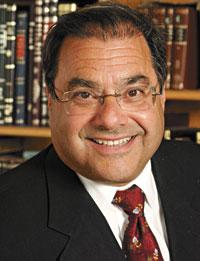Day 12
What Made Moses the Greatest Prophet?
Dedicated to the memory of Miriam and Sydney Kett. Melinda and Russell Kett, with Justin, Nicholas, Shira, Miri and Doniel.
CLICK HERE TO BUY THE BOOK

Rabbi Dr Shlomo Riskin
Rabbi Dr Shlomo Riskin is the founding Rabbi of Lincoln Square Synagogue, New York, which he led for 12 years; founding Rabbi of the Israeli town of Efrat. He is also the founder and Chancellor of the Ohr Torah Stone Institutions, a network of high schools, colleges, and graduate programmes in the United States and Israel.





